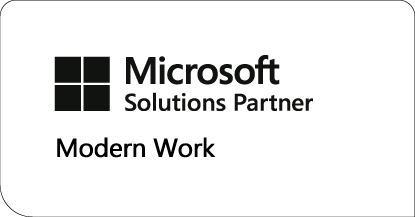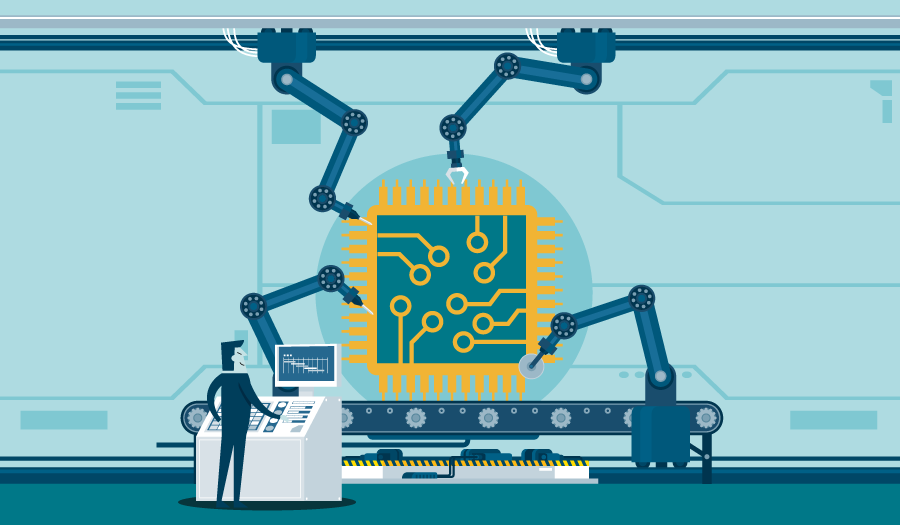






Digital transformation is the convergence of business, digital and technology, which is reshaping our world and defining our futures, whether we like it or not. The ultimate goal of implementing technology for business is to deliver significant improvements to the bottom line; the investment simply put: ‘has to be worth it’.
For businesses in manufacturing and distribution, the use of technology allows revenues to be maximised, costs reduced, quality improved and flexibility increased, through the availability of accurate data to aid better decision-making.
Digital transformation is a journey, not a destination! It’s an ongoing process of adaptation and evolution in response to the ever-changing technological landscape and shifting customer expectations.
Embracing digital transformation allows manufacturers and distributors to stay competitive, streamline operations, improve efficiency, and deliver better customer experiences.
Remember, the goal of digital transformation is not just to implement new tech’, but to fundamentally change how your business operates and delivers value to customers.
The decision to embark on a digital transformation journey should be well-timed and tailored to your business’s unique needs and circumstances. It’s not about rushing into it, but rather about making strategic, informed, decisions that align with your business goals.
Day-to-day operations are indeed demanding, and it’s common for businesses to feel that their current processes and ERP solutions are not optimised. This is where digital transformation comes into play, offering opportunities to streamline operations, improve efficiency, and drive growth.
However, finding the right solutions partner is crucial; a good partner will understand your business, help you navigate the complexities of digital transformation, and ensure that you gain maximum value from your investment. They should guide you through the implementation of an ERP solution, like Microsoft Dynamics 365 Business Central, ensuring it’s tailored to your needs.
Remember, digital transformation is not just about technology, but also about people and processes. It’s about creating a culture that embraces change, encourages innovation, and strives for continuous improvement. With the right approach and the right partner, digital transformation can help your business propel to new heights.
Deciding that you’re ready is admitting that things need to change and, in turn, improve. If it’s time to rethink your current ERP system, here’s are some of the issues you may be experiencing:
These challenges highlight the need for a more integrated and efficient system.
Digital transformation is not just about implementing new technology, but about fundamentally changing how a business operates and delivers value to its customers. It doesn’t make sense to apply technology to digitalise an existing process, it’s about transforming the process to be significantly better.
In the context of manufacturing, digital transformation could involve the following:
1. Automation: Using technology to automate repetitive tasks, freeing up human workers for more complex tasks.
2. Data Analytics: Digital transformation allows businesses to collect and analyse data in real time, enabling them to make more informed decisions.
3. Supply Chain Optimisation: Digital tools can help businesses optimise their supply chains, making them more efficient and cost-effective.
4. Customer Experience: Improving the customer experience for example through personalised marketing or improved customer service.
5. Innovation: Digital transformation can foster innovation, for example by enabling businesses to develop new products or services.
The benefits of digital transformation in the manufacturing sector, particularly in the context of Industry 4.0, are substantial and extend beyond just ERP systems.
Industry 4.0 refers to the integration of intelligent digital technologies into manufacturing and industrial processes. It encompasses a set of transformative technologies, including: IoT Networks, Artificial Intelligence, Big Data, Additive Manufacturing (3D printing), renewable energy and virtual reality (VR) and Augmented Reality (AR).
As per the McKinsey report - Digitalisation, digital transformation can lead to:
1. Increased Throughput: Digital technologies can enhance manufacturing processes, leading to a 10-30% increase in throughput.
2. Quality Improvement: By leveraging data analytics and machine learning, manufacturers can improve product quality by 10-20%.
3. Reduced Machine Downtime: Predictive maintenance enabled by IoT (Internet of Things) devices can reduce machine downtime by up to 50%.
Implementing digital transformation across several factories and locations is intense, therefore companies are advised to start as early to capture benefits across the whole manufacturing value chain.
Implementing Microsoft Dynamics 365 Business Central serves as the foundation for these digital transformations. It integrates various business processes, providing a unified view of the business that enables better decision-making. Furthermore, its flexibility allows for the integration of additional digital technologies as needed, making it a robust and scalable solution for manufacturers embarking on their digital transformation journey.
9 Examples of Manufacturing Digitalisation in 2024 - Whatfix.com
Selecting the right ERP solutions partner for your business is fundamental to success, here are some considerations:
Microsoft Dynamics 365 Business Central is a business management solution designed for small and mid-sized organisations. It streamlines and automates various business processes, helping you manage your business more efficiently. To put it simply it connects and streamlines all businesses process such as sales, customer service, inventory, finance and operations, manufacturing and logistics, allowing you to work smarter, adapt faster and perform better. Approximately 32% of Manufacturing and Distribution Companies use Microsoft ERP systems.
It is essential to choose a partner with a proven track-record in the manufacturing /distribution sector to ensure a successful digital transformation journey with Microsoft Dynamics 365 Business Central.
Tecman would be delighted to assist you with making the first steps of your digital transformation journey. Our expertise in ERP solutions for the manufacturing and distribution sectors, means we’re well-positioned to provide valuable advice and guidance. If you would like to understand more, join us for one of our complimentary ‘Introductory events’ or simply get in-touch.